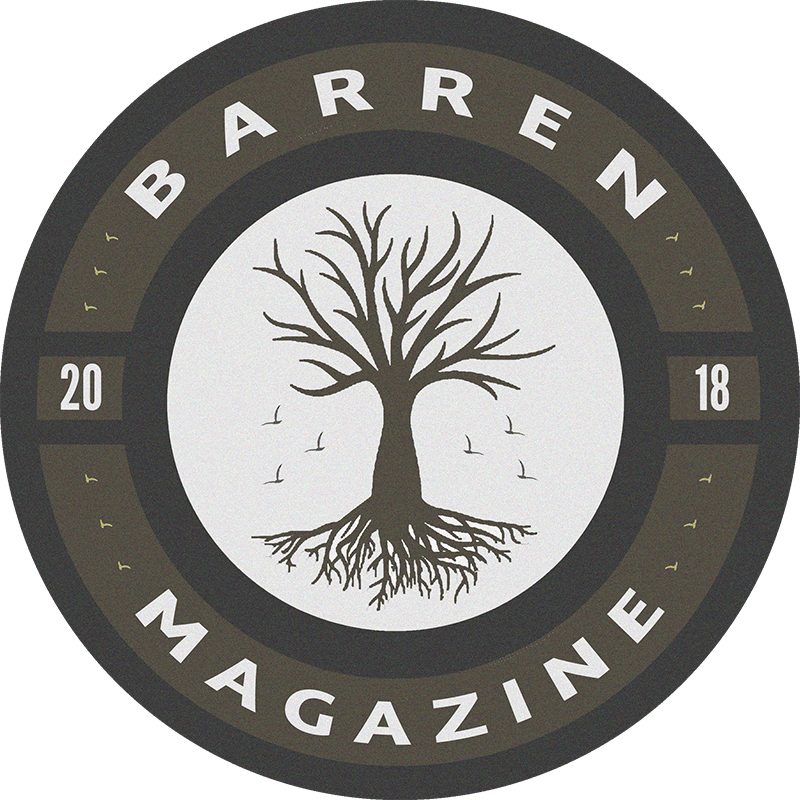We realize just outside Viana do Castelo we have a stowaway. We had woven our way through the warm evening up the Portuguese coast, quiet from an afternoon spent on the grounds of a Gothic monastery. After sharing our picnic of white rolls and cheese from the local market, we had relaxed back on the thick, crunchy grass and shielded our eyes against the sun, taking in the view of the grey stone spires against the cloudless sky. Sean’s focus now fixed on the road, he moves his hand to my thigh, his thumb tapping to the beat of the radio’s tinny Euro-pop. I shift in my seat so his hand rests on the bag next to my leg. Eleven years older than me, unshaven, his face puffy but handsome, Sean looks like a cowboy.
“It’s inside the van, I’m positive,” I say.
“It’ll get out.”
“Can you stop now so I can look?”
“It’s a cicada, it’ll be fine. It can get out tomorrow.” He moves his hand back to the steering wheel.
The headlights throw a brief ghostly highlight on lemon trees and haphazard chunky stone walls and every once in a while a dog, or a group of dogs, short-furred and lanky-legged, always running. We stop outside a Repsol gas station to get drinks. I watch Sean walk over to the Mart. He pauses to look at the blue fly zapper plugged in above the entrance, nods as it kills its prey. I climb through to the back to search for the cicada, his song strong. I move my tattered magazines, Allure and Marie Claire, and the sofa-bed’s cushions to the floor, my Pantene shampoo and lavender soap to the sink, trying to locate his call.
“What the fuck?” Sean says, head poking in the camper van door, Cokes in hand.
“I’m looking for Santiago.” I step on the sofa-bed, ducking my head, and open the cabinet above.
“The cicada?”
“Yup,” I say.
“Can you put this back together so we can get going?” He sips his Coke.
“Just give me a few. Or help.”
“There’s no room to help.” I turn and see him get into the driver’s seat. “And I’m pretty sure Santiago’s a Spanish name.”
I shut the cabinet doors and climb to the front. Sean starts the engine. As he pulls out, I scrunch up my throw blanket and use it as a pillow against the passenger door, looking out into the night. It’s Portuguese too, I think.
“Welcome to Spain,” Sean whispers as we cross the border. I doze until we stop for the night in Pontevedra. Sean parks in a rest area, long-limbed trees reaching down almost to the windshield.
“I think Santiago’s stuck inside the door panel,” I say.
Sean looks at me. “I’ll check tomorrow, in the light.”
“He won’t be chirping in the morning. We won’t know where he is.”
“We don’t know where he is now.”
I lean my head back. “Please, Sean.”
The search of the door panel reveals nothing but Sean’s increasing disenchantment with my rescue efforts. He shrugs, I told you so, as he screws the plastic panel back to the door.
“I don’t know what to do,” I say.
“There’s nothing to do. He’ll get out if he wants.”
“By the time we get to France, it’ll be too cold for him.”
“It’s a fucking cicada!”
“So it doesn’t matter?”
“Christ, I give up.”
“Of course you do.”
“What?”
“Of course you give up.”
He rubs his shoulder. “Are we still talking about a bug in the van?”
“We could’ve had a baby,” I say.
“I know.” He is still.
“It’s not something I can just forget.” I get out of the van, and walk over to the restroom. Sean doesn’t follow me.
As we drive, I pretend to sleep. I try to isolate the direction of the cicada’s fading call, weakened by the cooler air, by hunger, by loneliness. I fall into a restless dream where I am the cicada: trapped in this tin van, my calls unanswered.
“Can we talk about this?” Sean says in the early hours, waking me. He slides under the cover beside me on the sofa bed. I turn to him, pulling his face to mine. I had told him he looks like a cowboy one night a few months before, as we sat on canvas fold-up chairs by the camper van, sipping port from mismatched mugs. There’d been a slight chill in the air, and he’d given me his UMass hoody—with its smells of tobacco and bug spray—the only remnant of his abandoned MBA. We had spoken bravely that night, proofing ourselves from future tension by laundering our histories at that early stage, when newness and desire absolve so freely.
“I don’t know what to do now,” I say.
“Can we work that out together?” He puts my hand inside his, curls his fingers around mine and squeezes. At the moment I realize I can no longer hear the cicada calling, Sean whispers, “Rest in peace, Santiago.” I look through the window towards the village lights on a distant mountainside, a constellation of stars in an otherwise darkened landscape.
Header photograph © Ricky Garni.
Originally from England, Jo now lives outside New York City. She is the assistant editor at X-R-A-Y Literary Magazine. Her short stories and creative nonfiction have recently appeared, or are forthcoming, in Okay Donkey, Ellipsis Zine, Pithead Chapel, The Coachella Review and others. Jo is a 2021 Pushcart Prize nominee, has been a writer in residence at L’Atelier Writers for two years, and is studying for her MFA.
